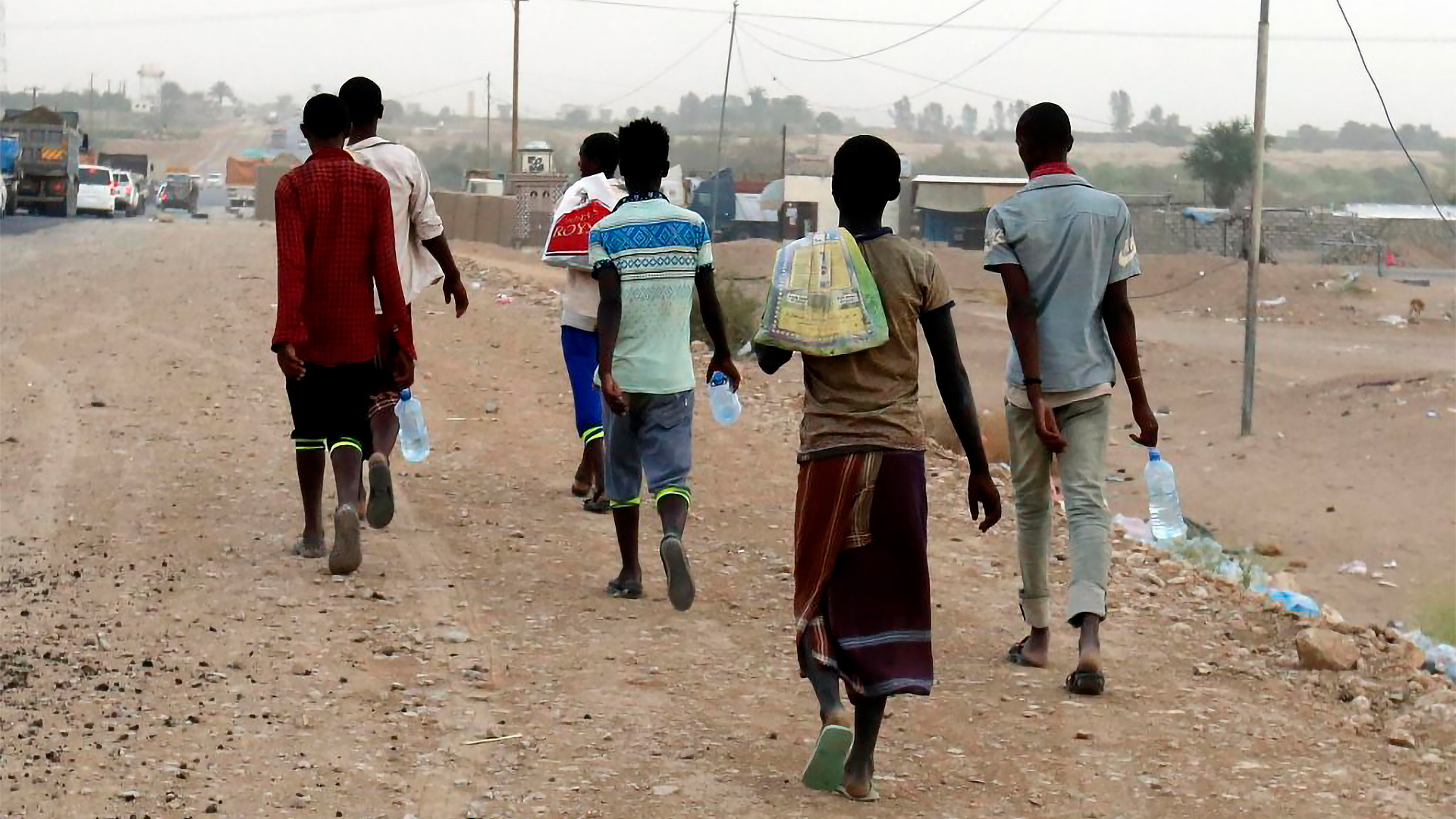IOM raises alarm: funds needed now to help migrants in the Horn of Africa and Yemen
At least $99 million in aid is needed. It is needed now, because the situation is increasingly serious. This is the appeal launched by the International Organisation for Migration (IOM), with the Regional Migrant Response Plan 2021-2024, a document that focuses on the migration route between Yemen and the Horn of Africa.
It is a very dangerous route, in a difficult arm of the sea, with people fleeing persecution and conflict to a land itself torn apart by fierce warfare.
IOM, together with regional governments and 38 partner countries, have launched an urgent appeal: at least $99 million in aid is needed for more than half a million vulnerable migrants in the Horn of Africa and Yemen. Many of those in need of urgent help were stranded along the route from the Horn of Africa to Yemen.
The UN agency’s statement noted that: “These funds are needed for the first year of a four-year plan to address the dire humanitarian, human rights and security challenges faced by migrants in the region. Once met, the funds raised will assist local communities in the affected countries, which are also impacted by the emergency”.
According to IOM: “Every year, tens of thousands of migrants in the region leave countries such as Ethiopia and Somalia, and others, in search of work and employment opportunities to escape poverty, the effects of climate change, violent conflict and discrimination. Many undertake dangerous journeys full of risks and face life-threatening situations during their journey. They lack access to food, water, shelter and medical care. Every year, migrants die of hunger and dehydration along the way. Many more are exposed to human rights violations, including arbitrary arrest and detention, torture and sexual and gender-based violence. In addition to facing stigma, discrimination and xenophobia, migrants continually face various forms of exploitation by traffickers and smugglers. Nearly 700 migrants are currently stranded and in need of assistance in Djibouti, and more than 900 in Somalia. In Yemen, the number is much higher: 14,500 men, women and children, many of them unaccompanied”.
IOM, in the document, stressed that the COVID-19 pandemic had ‘worsened all these conditions. Migrants have been summarily dismissed from their jobs, leaving them and their dependent families in even worse conditions than they were in before they started their journey. Funds collects from this $99 million appeal will increase migrants’ chances of returning home and being successfully reintegrated into their communities. Support will also be given to communities of origin to address the drivers of ‘irregular’ migration, strengthen the capacity of governments in the region to provide humanitarian support and further improve the coordination of humanitarian organisations, as well as better management of migration on the route,” reads the Regional Migrant Response Plan 2021-2024.
The regional picture is dramatic: the conflict in Yemen has caused the death of at least 230,000 people, according to the United Nations, while in Ethiopia the recent escalation of the conflict between the central government and the Tigray region has led to mass executions and human rights violations, while the security situation in Somalia has been very fragile since the 1990s.
Added to this political context is climate change, which is particularly serious in the Horn of Africa region, where the water crisis is increasingly pressing. Finally, at least 1,314 people have lost their lives in the sea crossing to Yemen since 2014, according to the UN Missing Migrants Project.
by Christian Elia

